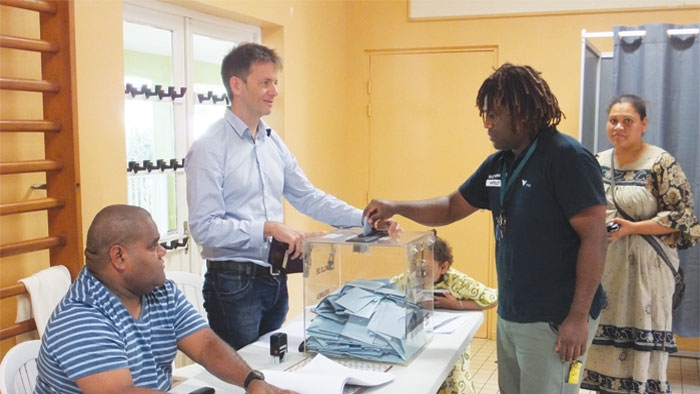WITH New Caledonia scheduled to hold a referendum on self-determination in late 2018, there is a looming crisis over who will be eligible to vote. More than 25,000 Kanaks are not properly registered on the French electoral roll, while the status of thousands more French voters is under challenge. If this problem is not resolved quickly by the French authorities, thousands of indigenous people may be unable to participate in the vote on the country’s political future. Since the signing of the Noumea Accord in May 1998, there has been a series of complex and legalistic debates over who is eligible to vote for local political institutions, as well as the proposed referendum on self-determination.
New Caledonia has three different electoral rolls. The general roll covers all French nationals of voting age, who can vote for French political institutions such as the National Assembly and Senate in Paris. Another electoral roll is used for New Caledonia’s local political institutions. It defines voting rights for the three provincial assemblies and national Congress, and is restricted to New Caledonian citizens rather than all French nationals. Yet another list is being developed for the referendum on selfdetermination, which is the culmination of the 20-year long transition towards decolonisation created by the Noumea Accord.
Because of colonial settlement and ongoing migration, the Kanak people are a minority in their own country (a similar problem facing the Chamorro people in Guam or the Melanesian population of Indonesian-controlled West Papua). But the Noumea Accord, which ended the armed conflict of the 1980s, was based on a compromise that the future of New Caledonia should be determined by all long-term residents of the French Pacific dependency, not just the indigenous, colonised people.
…..to read more buy your personal copy at
